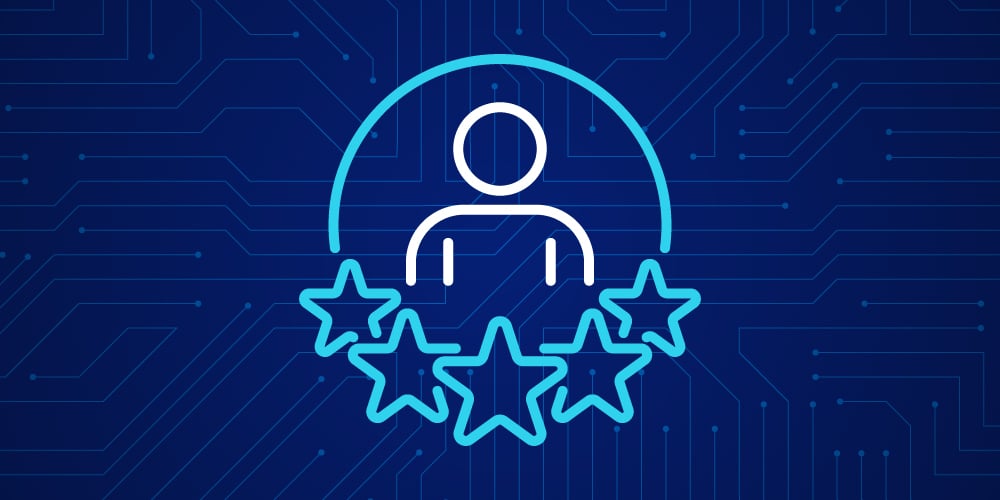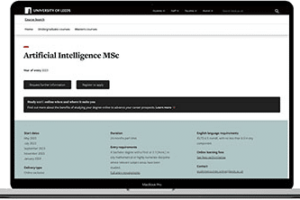The Top 5 AI Skills You Need to Land A Job in Artificial Intelligence

Artificial Intelligence (AI) is one of the most quickly evolving and promising technologies currently in development across multiple industries around the globe. Whilst we are still far from knowing the impact AI will have on the future, developing an understanding of how it might affect certain sectors is a crucial first step.
To get started, it is important to understand the demand for AI skills in the labour market and various spheres of activity in which it is infiltrating. This article outlines some of the key skills you need to be a successful professional in the AI sector.

1. Technical knowledge
AI is a very technical subject that goes far beyond many other areas in terms of comprehending different intricacies involved. Therefore, mathematical and scientific related skills are often desired by employers in AI. Programming expertise in Python, C#, and R, together with experience in AI-specific vendors and applications, as well as user interface (UI) and user experience (UX) are necessary to success; they are easy to learn, and their applications provide a broad scope.
Specifically, a Data Scientist would need in-depth knowledge of SAS, R, and Python coding, experience working on cloud tools like Amazon’s S3, and the ability to understand and interrogate unstructured data.
As part of the University of Leeds distance learning Artificial Intelligence MSc, you will study Robotics, Data Mining and Text Analytics, Machine Learning and Deep Learning, which are aligned with market needs to help you develop high-demand skills. For example, by the end of the Machine Learning module, you will know the principal algorithms used in machine learning and how to apply them to a given scenario. This will enable you to appreciate the capabilities and limitations of current approaches and evaluate the performance of machine learning algorithms.

2. Communication and emotional intelligence
Emotional intelligence is the ability to be aware of, control, and express one’s emotions – and to be aware of the emotions of others. Someone with good emotional intelligence can work well with others and show empathy. Given that machines cannot currently replicate humans’ ability to connect with other humans, it makes sense that those with good emotional intelligence will be in even greater demand in the workplace. Related to this, the ability to successfully exchange information between people will be a vital skill, meaning you must hone your ability to communicate effectively with other people – using the right tone of voice and body language to deliver your message clearly.
On top of this, you will have to be confident explaining complex AI concepts to management and business stakeholders who might not possess the same level of technical expertise as you. Communication skills are therefore critical to ensure relevant team members or project stakeholders are aware of the progress of certain tasks and activities.

3. Critical thinking
Critical and analytical thinking is a valued skill when you work with AI systems, particularly as we navigate the changing landscape of the workplace and division of labour between humans and machines. Having strong critical thinking skills enables you to produce innovative solutions to complex problems and helps you weigh up pros and cons of various potential solutions.
As a professional in the AI sphere, facing problems with logic and reasoning rather than emotion is crucial. That is why we teach you the Knowledge Representation and Reasoning module on our Artificial Intelligence MSc. During this module, you will learn how to use an automated reasoning software tool to compute inferences from logical representations. You will also be introduced to informal descriptions of complex real-world scenarios and understand the principles of automated reasoning and the power limitations of different representations and inference mechanisms. Finally, you will understand what an Ontology is and how it can be used within an information system and be able to create simple ontologies using a software tool.

4. Intellectual curiosity
Intellectual curiosity is curiosity that leads to an acquisition of specialist knowledge. It can include curiosity about what objects are composed of, the underlying mechanisms of systems, mathematical relationships, languages, social norms, and history. As a professional working in AI, you will need to have this curiosity to work outside of your comfort zone, think outside of the box, and to propose solutions that push the boundaries of best practice in your business and sector.
As part of the Artificial Intelligence MSc, you will be required to complete a large project at the end of the course. This will allow you to apply your academic study, techniques and knowledge acquired from the course to develop AI solutions to the real world in your current role. You will address a work-related challenge, encouraging you to explore, analyse, and innovate upon existing critical theory and practice.

5. Decision making
We are facing a technological revolution: the combination of automation and machine learning may delegate consequential human decisions to computer algorithms. This is because computers, in a lot of scenarios, are now capable of processing information better than the human brain. However, it is up to humans to make business decisions in organisations, considering the implications of the decision and the people within the organisation. Decision making skills are therefore important to AI careers and, even as AI evolves to make mundane decisions, humans will still take responsibility for higher level complex decisions.
Our Ethics of Artificial Intelligence module will teach you the analytical and theoretical tools to engage with the ethical questions that this raises, such as: Who is morally responsible when an automated system makes a mistake? You will apply the academic skills learned in the module to real-life issues and case studies in AI.
Studying AI for your future
Our innovative online MSc course is designed and taught by computer scientists specifically for professionals who recognise the importance of AI to their sector. The MSc course is purely AI focused, covering an extensive range of AI and Machine Learning tools and techniques. All the modules answer directly to the skills that employers are actively seeking within the AI development sector today and in the future.
This course is designed specifically for those:
- Looking to reskill to enter the AI developer profession.
- Looking to upskill to develop, manage, or plan AI solutions within their current organisation.
- With solid mathematical or statistical knowledge and a minimum of calculus, algebra, and linear algebra fundamentals.
- Seeking a route to higher level study to develop academic prowess further within this field.
- From a wide range of professional careers including Professor, Politician, Senior Manager or CEO and Sales and Marketing.
Did you enjoy this blog? Here's some related artificial intelligence content that you may be interested in:
Want to learn more about our online Artificial Intelligence course?

Check out the course content and how to apply.

